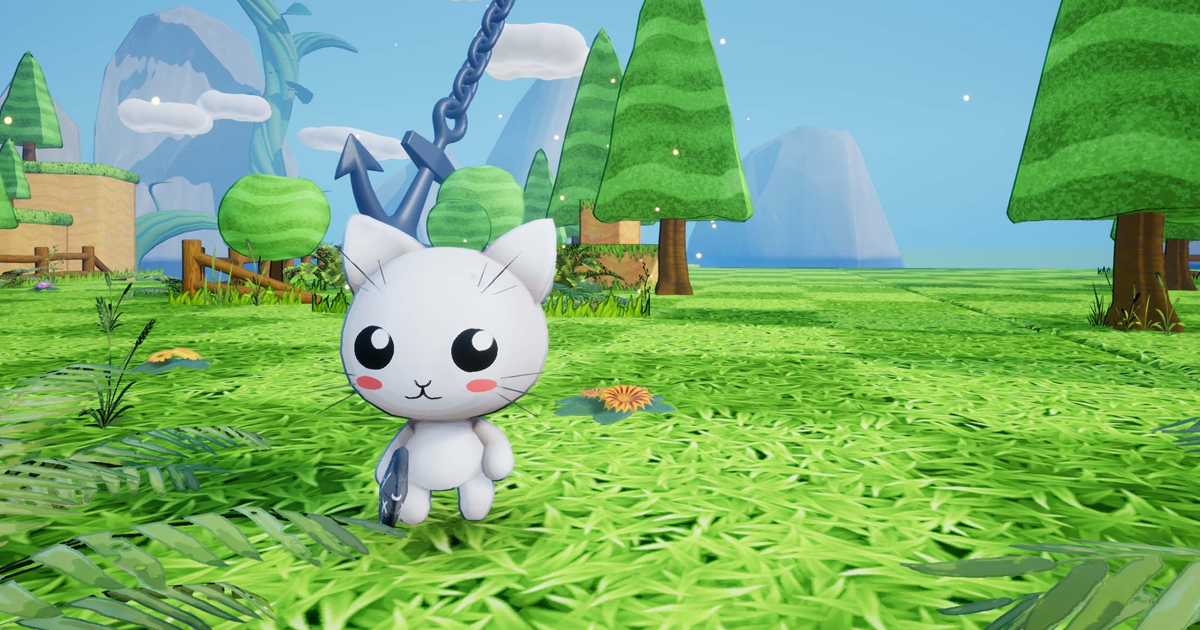Why indie platformer Neko Ghost, Jump! only sold 100 units at launch despite getting 17,000 wishlists
Neko Ghost, Jump! has generated more than 17,000 wishlists on Steam. The game, however, only sold 100 copies on day 1. Developer Victor Burgos tried to figure out the reasons for the failed launch.
Burgos shared his story on Reddit, with the post getting over 800 upvotes and causing debate among users.
Let’s start with what nine-people studio Burgos Games achieved prior to launch:
- In 2020, the team finished its Kickstarter campaign, raising $20k instead of $15k;
- Burgos Games received an Epic MegaGrant last year (the sum is undisclosed);
- Over the last two years, the studio showcased Neko Ghost!, Jump! at dozens of trade shows and festivals, including PAX, Indie World Con, Steam festivals, and Gamescom. The game even won the Best Indie Showcase Trailer From Fans at E3 2021;
- As a result, the title generated over 17,000 wishlists on Steam, which is quite good numbers for such a small team.
What happened at launch and what were the reasons behind the failure?
- Burgos expected Neko Ghost, Jump! to sell 500 copies and get 50 user reviews on day 1.
- The game came out in Early Access on January 11, only reaching 100 units sold (with three refunds) and getting eight reviews from players (a few days later, the studio managed to sell 32 more copies).
- According to Burgos, the conversion rate for Neko Ghost, Jump! was around 0.7%, with 80% of sales coming from wishlists.
- As the developer pointed out in his post, the title’s genre (puzzle platformer) and its Early Access release were one the main reasons behind the failed launch. Many players prefer to buy games on full release, especially when it comes to such genres.
- Neko Ghost, Jump! came out just days after a Steam winter sale. A lot of users have already bought all the games they wanted to, so they probably ignored the launch of a small indie project.
- Burgos also didn’t put a lot of effort into the pre-launch marketing and PR, which resulted in Neko Ghost, Jump! being ignored by influencers, streamers, and big gaming outlets.
- Some users also assumed that the game’s price of $15 could have become another problem. Although Burgos thinks that this price was fair enough, considering the amount of content available at launch, he agrees that this could be one of the factors.
What do other developers think of it?
Many indie devs supported Victor Burgos and shared a few thoughts on the matter after he posted the story on Twitter.
Cloak and Dagger Games’ Shaun Aitcheson noted that Early Access was probably a big factor as players “would rather just buy a game when it’s fully done.”
Early access is probably a pretty big factor here. A lot of people would rather just buy a game when it’s fully done so hopefully you’ll get a lot more sales then. But in general Steam is extremely unpredictable these days!
— Shaun Aitcheson (Cloak & Dagger Games) (@shaunaitcheson) January 13, 2022
Journalist and writer Mike Diver agreed, saying that “lots of outlets won’t put an opinion behind an EA release, instead waiting for the finished product.”
Yeah, I get that disappointment (been there in the PR days!). So many sites are largely data driven nowadays, including the one I manage, that it makes it hard to fit *other* pieces in. ROI is everything and smaller projects only get in if a staffer really wants to cover them.
— mike d (@MikeDiver) January 14, 2022
Dice Of Olympus creator Anton Bodin-Marty asked why the team didn’t partner with a publisher as it could have helped on the marketing side. According to Burgos, the reason is that no publisher has given the studio acceptable terms so far.
Reasons: The community wasn’t engaged enough? Old wishlists? Waiting for the full launch? Doesn’t like the price?
But, even though the numbers on the Release day can be a base for future sales predictions, do not give up – you can still push up the sales within the release week!— Rok Jesenicnik (@RokJesenicnik) January 14, 2022
To sum things up, Stargazy Studios founder Jeff Sheen said that the biggest takeaways from Burgos’ case are that developers should market their games prior to launch and avoid busy release windows. He also noted that the Early Access format might be unacceptable by the market for some genres, including puzzle platformers.
